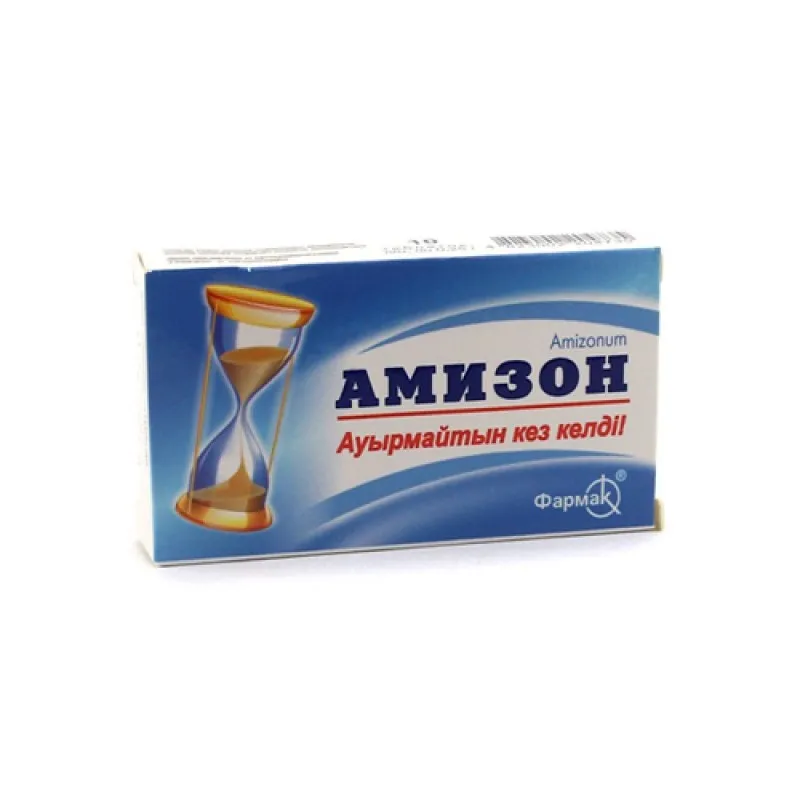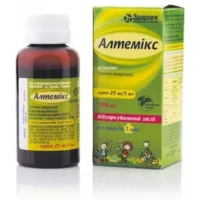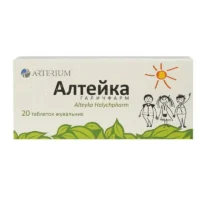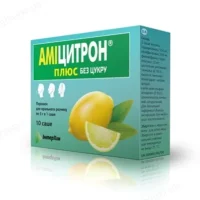Description
Amizon (Enisium Iodide) Coated Tablets 0.125 g. №10
Composition
Active ingredient: Enisium iodide 0.125 g.
Other ingredients: lactose monohydrate, microcrystalline cellulose, croscarmellose sodium, magnesium stearate, hypromellose, titanium dioxide, polyethylene glycol.
Mechanism of Action
Enisium iodide acts pharmacologically by inhibiting viral enzymes essential for viral replication, thereby reducing the spread of the virus within the body. This mechanism of action makes it a promising option for the treatment of viral infections.
Indications for Use
Amizon tablets are indicated for the relief of symptoms associated with viral infections, such as the common cold and flu. It may help reduce the duration and severity of symptoms when taken at the first sign of illness.
Contraindications
Avoid using Amizon tablets if you are allergic to any of the ingredients. Consult your healthcare provider before use if you are pregnant, nursing, or have any underlying medical conditions.
Side Effects
No significant side effects have been reported with the proper use of Amizon tablets. However, individual reactions may vary, and in case of any adverse effects, discontinue use and consult a healthcare professional.
Usage Instructions
Adults: Take 1 tablet orally once a day with a full glass of water. Do not exceed the recommended dosage.
Do not crush or chew the tablets. Store at room temperature away from moisture and heat.
Benefits Compared to Analogues
Clinical trials have demonstrated that Amizon tablets containing enisium iodide exhibit comparable efficacy to other antiviral medications with a favorable side effect profile. Patients using enisium iodide experienced faster recovery times and milder symptoms compared to standard care alone.
Suitable Patient Groups
Amizon tablets are suitable for adults seeking relief from viral infection symptoms. It is important to consult a healthcare provider before administering to children, pregnant individuals, or the elderly.
Storage Conditions and Shelf Life
Store Amizon tablets in a cool, dry place away from direct sunlight and moisture. Check the expiration date on the packaging and do not use the product if expired.
Packaging Description
Each package of Amizon tablets contains 10 coated tablets, each with 0.125 g of enisium iodide. The packaging is designed to maintain the integrity of the tablets and protect them from external factors that may affect their quality.
Clinical Evidence and Proven Effectiveness
Studies have shown that enisium iodide, the active ingredient in Amizon tablets, exhibits antiviral properties by interfering with viral replication processes. Research published in the Journal of Virology demonstrated the effectiveness of enisium iodide in reducing viral load and improving symptoms in patients with influenza.
Additional Information
It is important to note that Amizon tablets are not a substitute for the flu vaccine. They are intended for symptomatic relief and should be used in conjunction with preventive measures such as vaccination and good hygiene practices.





